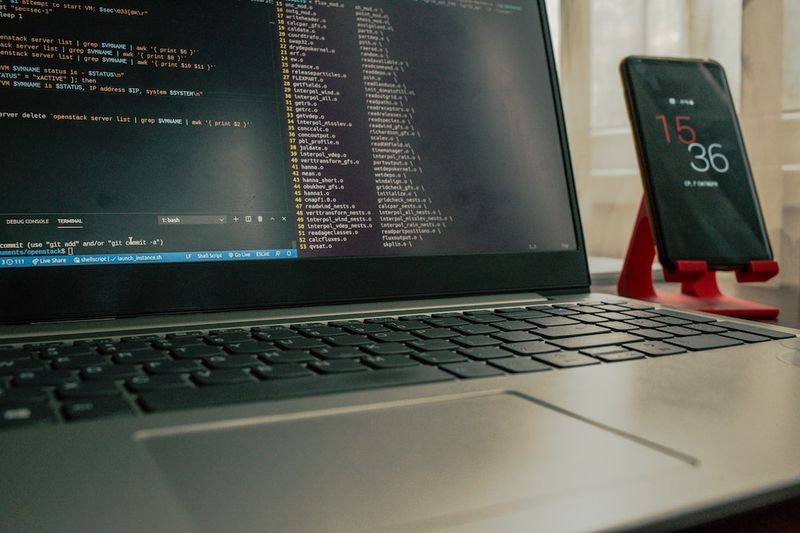Two eastern Idaho hospitals and their clinics are working to resume full operations after a cyberattack on their computer systems. Healthcare organizations have been an appealing target for cyber attackers, particularly those who use malware to lock a victim organization’s files and leverage the information for a payment. Ransomware has remained a persistent threat for the industry, which is among the sectors the U.S. government classifies as critical infrastructure.
The Attack on Idaho Hospitals
According to the Associated Press, officials with Idaho Falls Community Hospital said the attack occurred on Monday, causing some clinics to close, some ambulances to be diverted to nearby hospitals, and their cafes to only accept cash. Mountain View Hospital, also located in Idaho Falls, was similarly affected by the computer virus, officials said. However, hospital information technology staff identified the attack quickly and took immediate action to limit the impacts and keep all patient information safe and secure.
Officials in the Idaho attack referred to the problem as a virus that needs to be removed, and work to fully recover from the attack was ongoing on Wednesday. “Both hospitals remain open and are safely caring for all their patients, and the vast majority of clinics are seeing patients as usual,” officials said in a blog post on the Idaho Falls Community Hospital website.
The Threat of Ransomware
Ransomware is a form of malware that, once it infects a computer system, encrypts all the victim’s files, making them unusable. The attackers then demand a ransom payment in exchange for the decryption key to restore access to the files.
Healthcare organizations are among the sectors that are frequently targeted by ransomware attacks due to their vast amounts of sensitive personal data. Patients’ personal and medical information is worth a significant amount on the black market, and hackers are eager to profit from it.
The Federal Bureau of Investigation (FBI) has stated that the number of ransomware attacks and related demands is on the rise. Additionally, they have identified malicious activities from Russian hackers and North Korean hackers who have previously targeted organizations in the healthcare sector.
The Importance of Cybersecurity Measures
The recent attack on Idaho hospitals highlights the importance of healthcare organizations implementing robust cybersecurity measures. The threat of ransomware presents significant implications for patient privacy and safety. In recent years, several hospitals and healthcare providers have fallen victim to ransomware attacks, which have affected their operations and put their patients’ lives at risk.
Healthcare organizations must prioritize their data security strategies to prevent and minimize the damage from cyberattacks. Proper employee cybersecurity training, keeping software patched and up-to-date, conducting frequent security assessments, implementing strong access controls, and implementing incident response plans are all critical measures that can ensure prompt identification, response, and mitigation of cyber intrusions. Also, maintaining secure backups of patient data is essential to reducing the effects of a ransomware attack.
Editorial
Despite the increasing frequency of cybersecurity attacks and the damage they cause, many organizations still do not invest adequately in cybersecurity measures. The healthcare industry, in particular, must take cybersecurity awareness and preparedness seriously because cyberattacks can have a direct impact on people’s lives. For healthcare institutions, investing in strong data protection measures to prevent ransomware attacks must be made a priority.
Additionally, the U.S. government must take a more active role in creating and enforcing cybersecurity frameworks for healthcare institutions and other critical infrastructure sectors. The government must also provide education and resources to help organizations improve their cybersecurity posture.
Conclusion: Advice for Hospitals
In the face of the ever-increasing threat of ransomware and other cybersecurity attacks, it is crucial that hospitals and other healthcare organizations take cybersecurity seriously. Here’s some advice that can help:
1. Invest in cybersecurity measures:
Hospitals must implement robust cybersecurity measures to mitigate the risk of a ransomware attack. Proper employee cybersecurity training, limiting access to sensitive information, and regular software updates are a few of the ways to prevent cyber attacks.
2. Develop an incident response plan:
Hospitals must have an incident response plan in place to deal with cyber attacks. Every hospital should have a plan for monitoring network systems, identifying attacks, and effectively responding to them.
3. Conduct frequent security assessments:
Hospitals must conduct a regular security assessment of their organization’s assets to ensure that their cybersecurity measures remain robust.
4. Stay vigilant:
The threat of cyber attacks is constantly evolving, and hospitals must remain vigilant and stay informed of the current trends and threats in their industry.
In conclusion, hospitals and healthcare organizations must take the necessary measures to protect their patients’ personal data from cyberattacks. By investing in proper cybersecurity measures, conducting security assessments, and staying vigilant, hospitals can significantly minimize the risks of ransomware attacks and keep their patient data safe and secure.

<< photo by Tima Miroshnichenko >>
You might want to read !
- ‘Rising Threat: ‘Horabot’ Malware Targets Spanish-Speaking Users in Latin America’
- Inside North Korea’s Social Engineering Techniques: Insights from US and South Korea
- “The Growing Threat of Ransomware Attacks: Enzo Biochem Latest Victim with 2.5M Individuals’ Information Exposed”
- Why Maintaining a Strong Data Security Posture is Essential for Businesses
- The Vulnerability Exploited in MOVEit File Transfer Software: Analyzing the Impact on Organizations.
- Navigating the aftermath: Idaho hospitals’ uphill battle to recover from cyberattack
- Lessons from KeePass “master password crack”: Strengthening Your Password Security
- “Cyber Espionage Takes Flight: Camaro Dragon Unleashes TinyNote Backdoor for Covert Intel Collection”




